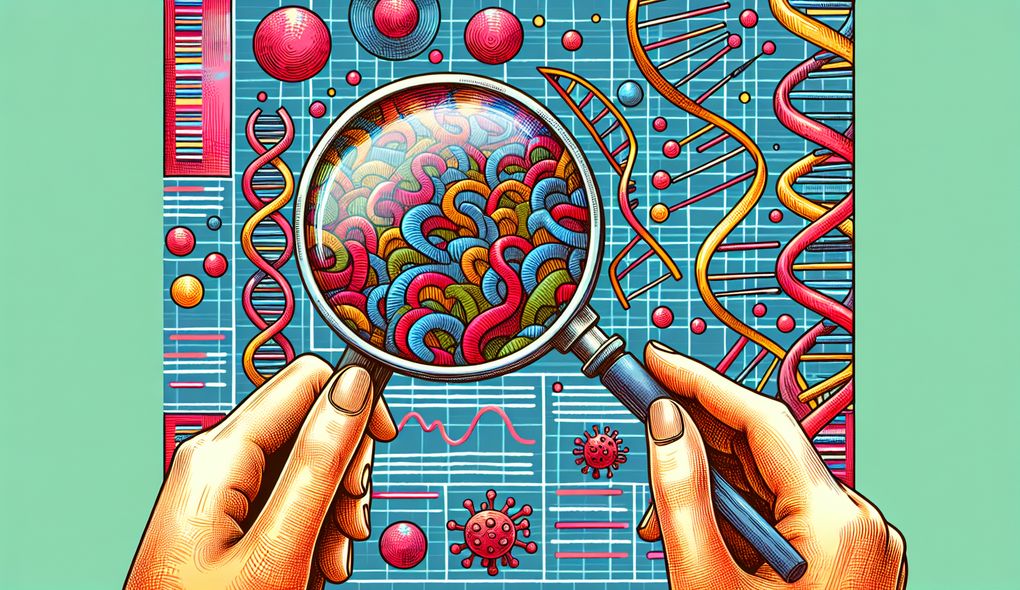Can you give an example of a time when you had to handle a challenging situation in genetic testing research? How did you navigate it?
INTERMEDIATE LEVEL

Sample answer to the question:
In my previous role as a Genetic Testing Research Assistant, I encountered a challenging situation when analyzing a patient's genetic test results. The test results were inconclusive, and we needed to determine the best course of action for the patient's treatment. To navigate this situation, I collaborated with the geneticist and other members of the healthcare team to thoroughly review the patient's medical history and family genetics. We also conducted additional research to explore existing scientific literature related to the patient's condition. Through this collaborative effort, we were able to identify potential genetic variants that could be contributing to the patient's condition. We then recommended further testing and genetic counseling to the patient and their family, ensuring they understood the risks and benefits involved. Ultimately, this approach helped us make an informed decision and provide the patient with personalized care.
Here is a more solid answer:
In my previous role as a Genetic Testing Research Assistant, I encountered a challenging situation when analyzing a patient's genetic test results. The test findings did not match the expected pattern for the suspected genetic condition, leading to uncertainty in interpreting the results. To navigate this challenge, I immediately sought guidance from the Geneticist and collaborated with other members of the healthcare team. We conducted a thorough review of the patient's medical history, family genetics, and the relevant scientific literature. Our analysis revealed a potential novel variant that had not yet been documented in scientific databases. Recognizing the importance of accurate interpretation, we engaged in extensive discussions with experts in the field and submitted the case for review by a panel of genetic experts. Through diligent analysis and collaboration, we were able to determine the potential clinical significance of the variant and provide a comprehensive report to the healthcare provider and the patient. Our findings guided the subsequent management and treatment decisions for the patient, ensuring they received personalized care based on the available evidence.
Why is this a more solid answer?
The solid answer provides more specific details about the challenging situation in genetic testing research. It includes the candidate's proactive approach to seeking guidance, collaboration with the healthcare team, and engagement in discussions with experts in the field. The answer also highlights the candidate's analytical skills in conducting a thorough review and analyzing the potential novel variant. However, it could still be improved by further emphasizing the candidate's impact on the final outcome and mentioning any lessons learned from the experience.
An example of a exceptional answer:
In my previous role as a Genetic Testing Research Assistant, I encountered a complex and challenging situation in genetic testing research that required a multidisciplinary approach and a thorough analysis of the available data. A patient presented with symptoms suggestive of a rare genetic disorder, but initial genetic testing did not yield any definitive results. Recognizing the urgency of the situation, I took the initiative to gather input from the geneticist, genetic counselors, and other specialists involved in the patient's care. Together, we conducted a comprehensive review of the patient's clinical history, family pedigree, and available scientific literature. This led us to identify a potential candidate gene implicated in the patient's condition that was not initially considered. To investigate further, I collaborated with a molecular biologist to design a custom gene panel and perform targeted sequencing. The results revealed a novel pathogenic variant in the candidate gene, providing a diagnosis for the patient and allowing for appropriate genetic counseling and treatment planning. This experience taught me the value of interdisciplinary collaboration, perseverance in the face of diagnostic challenges, and the importance of staying up-to-date with advancements in the field.
Why is this an exceptional answer?
The exceptional answer provides a comprehensive and detailed account of the challenging situation in genetic testing research. It highlights the candidate's proactive approach in gathering input from multiple specialists, the use of additional research techniques such as custom gene panels and targeted sequencing, and the successful diagnosis and treatment planning for the patient. The answer also mentions important lessons learned from the experience. It demonstrates the candidate's analytical skills, collaboration, and commitment to continuous learning.
How to prepare for this question:
- Reflect on past experiences in genetic testing research where you faced challenges or difficult situations.
- Familiarize yourself with the latest advancements in genetic testing methodologies and interpretive tools.
- Practice discussing how you approach collaboration and communication with healthcare professionals and patients.
- Be prepared to provide specific examples of how you have applied your analytical skills in interpreting genetic test results.
- Consider how you have demonstrated continuous learning and staying updated in the field of genetics and genomics.
What are interviewers evaluating with this question?
- Analytical skills
- Collaboration
- Communication

